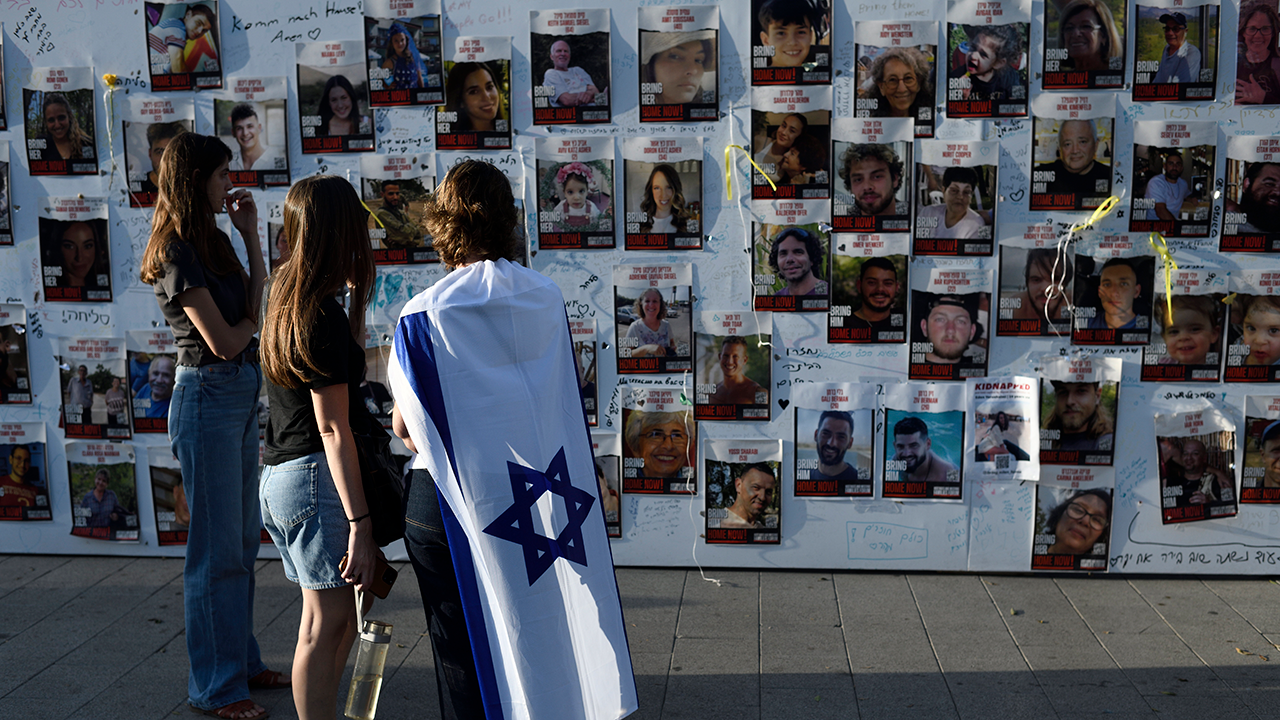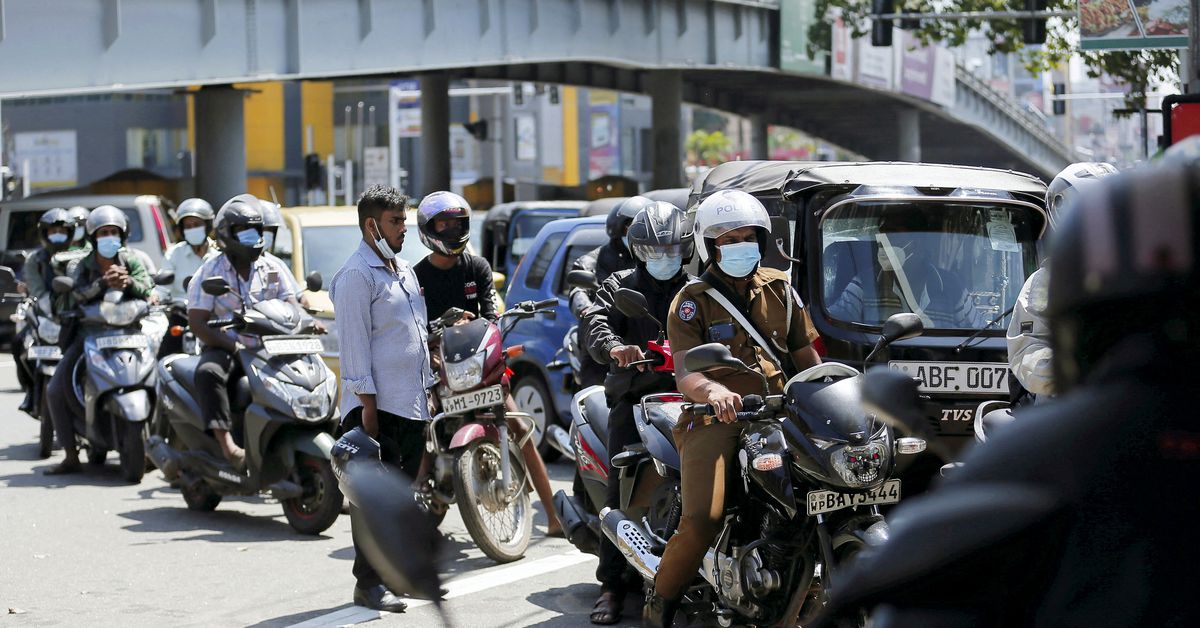A new Pew Research Center survey finds that 39% of Israelis say Israel’s military response against Hamas in Gaza has been about right, while 34% say it has not gone far enough and 19% think it has gone too far.
According to the survey, conducted in March and early April, roughly two-thirds of Israelis are also confident that Israel will either probably (27%) or definitely (40%) achieve its goals in the war against Hamas. Still, majorities of Israeli adults are worried about aspects of the ongoing war:
61% say they are extremely or very concerned about the war expanding into other countries in the region.
68% say they are extremely or very concerned about the war going on for a long time.
When it comes to what should happen after the war, there is less consensus. A 40% plurality of Israelis think Israel should govern the Gaza Strip. Smaller shares think Gazans should decide who governs (14%) or would like to see a Palestinian Authority national unity government either with (6%) or without (12%) President Mahmoud Abbas (also known as Abu Mazen) in leadership.
Separately, 26% of Israelis think a way can be found for Israel and an independent Palestinian state to coexist peacefully with each other – down from 35% who said the same last year, prior to the war, and about half as many as took that position when the question was first asked in 2013.
Research in the West Bank and Gaza
Pew Research Center has polled the Palestinian territories in previous years, but we were unable to conduct fieldwork in Gaza or the West Bank for our March/April 2024 survey due to security concerns. We are actively investigating possibilities for both qualitative and quantitative research on public opinion in the region and hope to be able to provide more data in the coming months.
These are among the key findings of a new survey of 1,001 Israelis, conducted via face-to-face interviews from March 3 to April 4, 2024.
The survey also asked Israelis about the U.S. role in the conflict. (It was conducted before U.S. President Joe Biden took a tougher stance toward Israel in the wake of an Israeli airstrike that killed seven World Central Kitchen aid workers. And it predates Biden’s declaration that the U.S. would not provide offensive weapons to Israel in the event of a Rafah invasion as well as the subsequent Israeli strikes in Rafah.)
The survey shows:
60% of Israelis disapprove of the way Biden is handling the Israel-Hamas war.
41% think Biden is striking the right balance between Israelis and Palestinians. Still, 27% of Israelis say he is favoring Israelis too much, while roughly the same share (25%) say he favors Palestinians too much.
Most Israelis express confidence in Biden to handle world affairs and have a favorable view of the U.S. But ratings of both Biden and the U.S. have fallen at least 10 percentage points since last year. (For more on this, read “How Israelis and Americans view one another and the U.S. role in the Israel-Hamas war.”)
A bar chart showing that a Majority of Israelis want the U.S. to play a major role in diplomatically ending the war
Nonetheless, a large majority (72%) still want the U.S. to play a major role in diplomatically resolving the war – more than say the same about any of the other countries or organizations asked about, including Egypt (45%), Saudi Arabia (29%), Qatar (27%) and the United Nations (24%).
Arab and Jewish Israelis
A dot plot showing that Israeli Arabs and Jews diverge sharply over views of the U.S., Israel-Hamas war and Biden’s handling of it
People across Israeli society perceive the war in vastly different ways, depending on their views of the current leadership, how they identify ideologically, their religious backgrounds and other factors. One of the starkest divides is between Arab and Jewish Israelis:
Arab Israelis are less likely than Jewish Israelis to think Israel will succeed in achieving its war aims (38% vs. 76%) and less optimistic when thinking about the future of the country’s national security (21% vs. 63%).
Israeli Arabs are much more likely than Jews to say the country’s military response has gone too far (74% vs. 4%).
Almost no Israeli Arabs (3%) want Israel to govern the Gaza Strip after the war, while half of Israeli Jews think it should do so. A plurality of Arabs would like the people who live in Gaza to decide who governs (37%), while only 8% of Jews prefer this outcome.
Arab Israelis have much less favorable views of the U.S. than Jewish Israelis do (29% vs. 90%), as well as less confidence in Biden (21% vs. 66%). They are also much more likely to disapprove of Biden’s handling of the war (86% vs. 53%) and to think he favors Israelis too much (86% vs. 11%).
Although a majority of Arabs (63%) want the U.S. to play a major role in diplomatically resolving the war between Israel and Hamas, an even greater share of Jewish Israelis (74%) want this. And roughly two-thirds of Arabs are open to Qatar and Egypt playing a major role, while only about four-in-ten Jews or fewer say the same.
Roughly nine-in-ten Arabs (92%) have a negative view of Israeli Prime Minister Benjamin Netanyahu, compared with around half of Jews (48%). Views of the two other war cabinet members, Benny Gantz and Yoav Gallant, are also divided along ethnic lines. (The survey was conducted before Gantz threatened to leave the war cabinet.)
In many cases, there are also large ideological differences, with Israelis who describe themselves as being on the left generally more critical of Israel’s war response, less optimistic about its success and more critical of the U.S. than those on the right. There also tend to be differences among Israeli Jews based on how religiously observant they are. For more on how we looked at these differences, refer to the box below.









